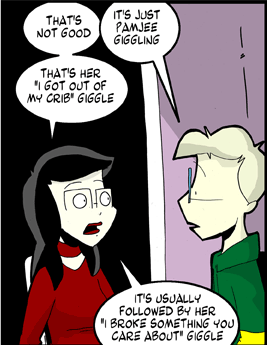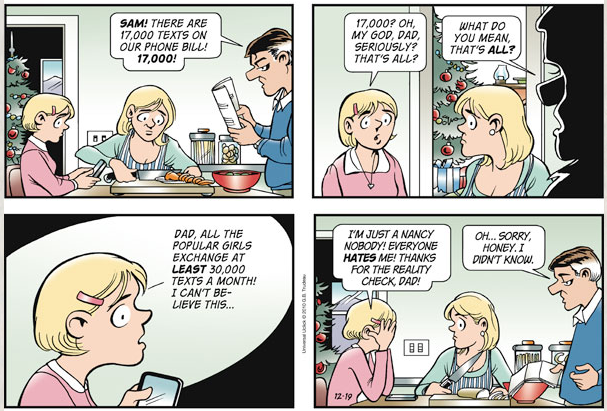Baby talk
 Many parents are oblivious to the nuances of their children's paralinguistic vocalizations. But not Aubrey Chorde, from the most recent Something Positive, who is interpreting here for her friend and house-guest Davan MacIntyre.
Many parents are oblivious to the nuances of their children's paralinguistic vocalizations. But not Aubrey Chorde, from the most recent Something Positive, who is interpreting here for her friend and house-guest Davan MacIntyre.
Some pre-verbal sound-meaning correspondences are universal — crying and laughing, for example. Some more subtle differences, like empty-stomach crying and full-diaper crying, are (I think) interpretable to some extent across children. But just like adults, very young children also develop idiosyncratic cries, laughs, grunts, giggles, and so on. And their lack of self-censorship makes these especially useful sources of information about their internal lives (and external but out-of-sight activities).
Read the rest of this entry »



